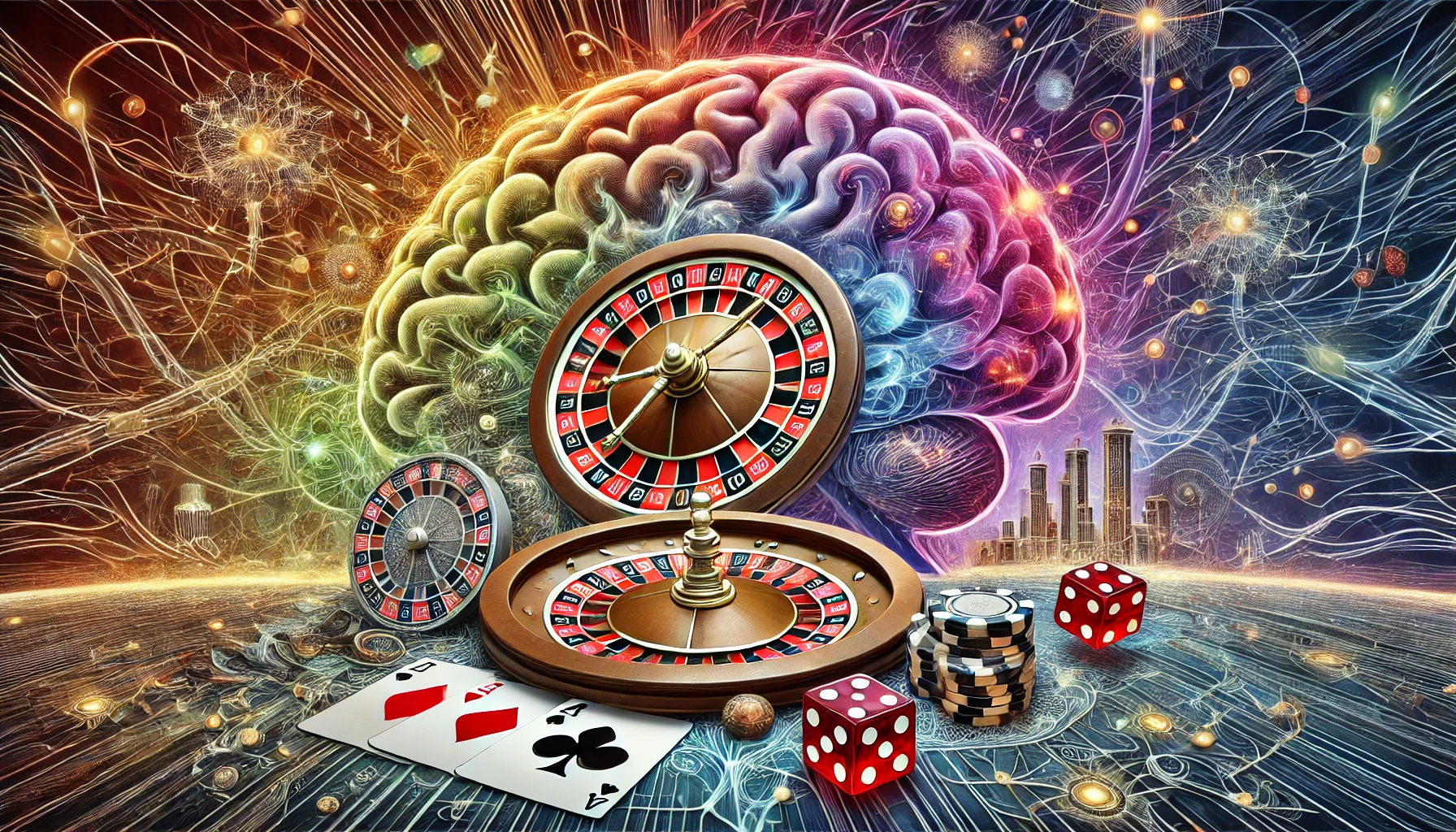Psychology
When we think of gambling, we usually associate the activity to casino games.
The truth is, gambling and risk is involved in many everyday activities.
We take gambles all the time and make calculated risks that either pay off or don’t.

We have an expectation and enjoy the risk element that comes with the gamble.
The win will feel all the better for having taken that risk, and we can rationalize the loss.
Yet it is still quite a taboo in some cultures.

How We Perceive Risk
Casino games provide the perfect lesson on how risk works.
It is more concrete than abstract gambles such as buying stocks or a property.
Or if your stocks provide yearly dividends of 10% until you sell them at 150% years later.

It is far more palpable in online casino games and sports betting.
The game is uncertainty, and that is a brilliant stimulator.
When playing casino games or betting on sports, our brains release dopamine, the pleasure hormone.

This thrill is the entertainment that players want when they play online casino games.
A win that we did not expect will release an extra kick of dopamine.
It almost feels like your brain rewards you for taking the risk and winning.

The experienced players know how to curb their expectations and play within their means.
However, any newcomers orvulnerable peoplemay have trouble separating their emotional biases from the actual probability of winning.
This can quickly become dangerous.

Physiological Aspects of Gambling
The release of dopamine can also cause our adrenal glands to release adrenaline.
The adrenaline rush will give you the energy you should probably fully dedicate yourself to your gaming.
But it comes at a cost.

Regardless of the real chances of that happening.
Players can easily createcognitive biasesthat warp their understanding of how the risk works.
The gambler’s fallacy is a key example of a gambling cognitive bias.

When assessing previous outcomes, we change our expectations of what will happen in the following rounds.
This is not found on any factual information.
Lucky and losing streaks are another bias based on a coincidental turn of events.

A similar boost in optimism can be recorded with near misses in slots.
You may be just 1 symbol away from creating a high value payline sequence.
Or, just 1 symbol short of triggering a bonus game that has the potential to hit major payouts.

The element of control is something that can also give players an optimistic bias.
Some players use proven basic strategies that increase the mathematical possibility of winning.
But they do not take away from the fact that you are still gambling.

There is always ahouse edgethat ensures the casino will get its cut of the action.
Are the Games Rigged
No because casinos can make profit using house edge.
Plus, it is illegal to rig casino games.

The simplest way to explain this is on a straight bet in French Roulette.
But the odds are not 37:1, they are 35:1.
Let’s say you bet 37 times and win once a theoretically perfect series of games.

Over the course of playing, you will spend $1 per round, so $37 in total.
With your win, you made $36, which means you are $1 short of breaking even.
Purpose of House Edge
All casino games have house edge.

Casinos, online or land-based, never rig their games.
They have to meet the safety and integrity standards of the industry.
All licensed platforms have to supply their games to auditors who will test them thoroughly for fair play.

If they get the green light from the auditors, they can release the games to the public.
Each game needs to be tested independently, there are no exceptions.
However, you must always bear in mind that there is a possibility of losing your money.

It is extremely concerning when players start borrowing money, especially credit from banks, to fund their gaming.
Loss aversionrefers to when losses do more harm than wins feel good.
This punch in of pressure compels a player to keep playing.
How to Gamble Responsibly
Casino games are not designed to steal your money or trap you.
Tested games, provided bylicensed online casinos, are intended for entertainment purposes only.
These online casinos work closely with organizations that prevent gambling harm and raise awareness for gambling addiction.
They are fully equipped with tools to give customers control over their spending and gaming habits.
And the most important thing is to play these games for entertainment purposes only.
Online casinos are not financial institutions that can settle your debts or bring you huge fortunes.
Daniel has been writing about casinos and sports betting since 2021.